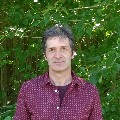Date: Monday, 24 June 2024
Time: 16:15 - 17:15 CEST
Session code 1AO.4
Biomass resources, related land-use impacts and emissions
Biomass Potentials, Reduction of Greenhouse Gas Emissions and Required Process Chains for Biomass from Rewetted Peatland
Short Introductive summary
Rewetting of drained peatlands to reduce GHG emissions is an issue that affects many European countries and an agricultural area of more than 50 million hectares in the EU until 2045. This not only poses enormous challenges for agriculture, but also offers great potential for the production of biomass, as these areas can no longer be used for food production in the near future. Since 2020, the Leibniz Institute for Agricultural Engineering and Bioeconomy (ATB) investigates together with 14 industrial partners from different branches the opportunities to use grass-like biomass from peatland as alternative raw material for products, which are currently mainly produced from wood, wood fibres, mischanthus or maize. Until now, most promising options are to produce fibres for pulp, paper, cardboards and insulation or using the biomass for substitution of peat or as substrate for biogas production. The application potential in these areas and the regional cultivation areas required for this were determined and the technical and economic requirements analysed in detail. Results of this analysis as well as the next steps for putting these new value chains into pratice will be presented.
Presenter

Ralf PECENKA
Leibniz Institute for Agricultural Engineering and Bioeconomy, Post Harvest Dpt.
Presenter's biography
Dr. Ralf Pecenka works as a researcher at the Leibniz Institute for Agricultural Engineering and Bioeconomy(ATB), Germany. His main research subjects are harvest, storage and processing of short-rotation woody crops and grass-like biomass from paludiculture. Further information: www.atb-potsdam.de
Biographies and Short introductive summaries are supplied directly by presenters and are published here unedited
Co-authors:
C. Lühr, Leibniz Institute for Agricultural Engineering and Bioeconomy, Potsdam, GERMANY
M. Heiermann, Leibniz Institute for Agricultural Engineering and Bioeconomy, Potsdam, GERMANY
Session reference: 1AO.4.4
